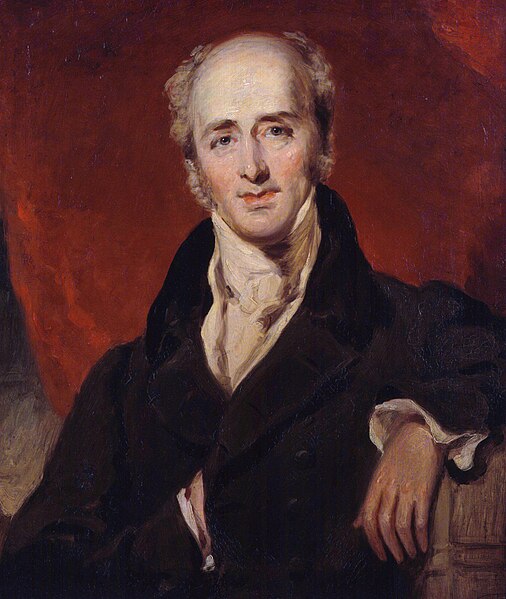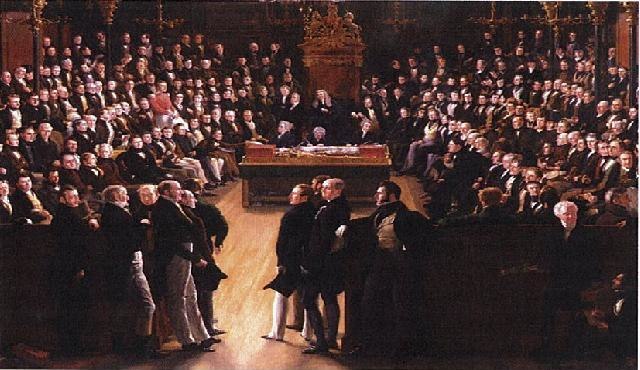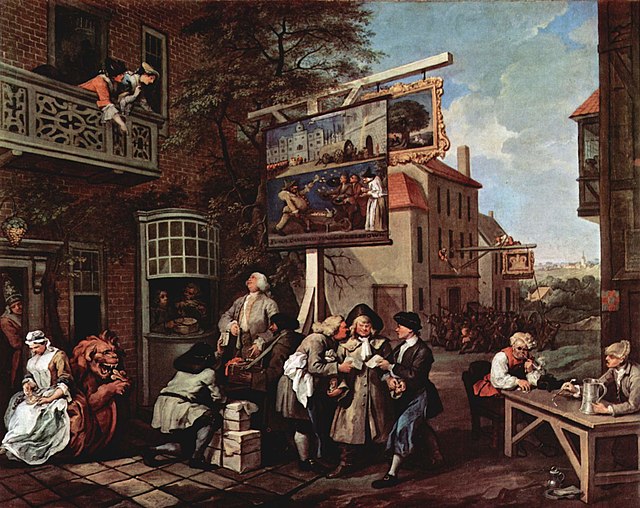1831 United Kingdom general election
The 1831 United Kingdom general election saw a landslide win by supporters of electoral reform, which was the major election issue. As a result, it was the last unreformed election, as the following Parliament ensured the passage of the Reform Act 1832. Polling was held from 28 April to 1 June 1831. The Whigs won a majority of 136 over the Tories, which was as near to a landslide as the unreformed electoral system could deliver. As the Government obtained a dissolution of Parliament once the new electoral system had been enacted, the resulting Parliament was a short one and there was another election the following year. The election was the first since 1715 to see a victory by a party previously in minority.
Image: Charles Grey, 2nd Earl Grey after Sir Thomas Lawrence copy
Image: Arthur Wellesley, 1st Duke of Wellington by John Jackson cropped
The Representation of the People Act 1832 was an Act of Parliament of the United Kingdom that introduced major changes to the electoral system of England and Wales. It reapportioned constituencies to address the unequal distribution of seats and expanded franchise by broadening and standardising the property qualifications to vote. Only qualifying men were able to vote; the Act introduced the first explicit statutory bar to women voting by defining a voter as a male person.
Start of parchment roll of the Reform Act 1832, with royal assent of King William IV marked above Le Roy le veult.
A painting by Sir George Hayter that commemorates the passing of the Act. It depicts the first session of the newly reformed House of Commons on 5 February 1833 held in St Stephen's Chapel. In the foreground, the leading statesmen from the Lords: Charles Grey, 2nd Earl Grey (1764–1845), William Lamb, 2nd Viscount Melbourne (1779–1848), and the Whigs on the left; and Arthur Wellesley, 1st Duke of Wellington (1769–1852), and the Tories on the right. Currently in the
The House of Commons is the lower house of Parliament.
Canvassing for Votes, part of William Hogarth's Humours of an Election series, depicts the political corruption endemic in election campaigns prior to the Great Reform Act.






